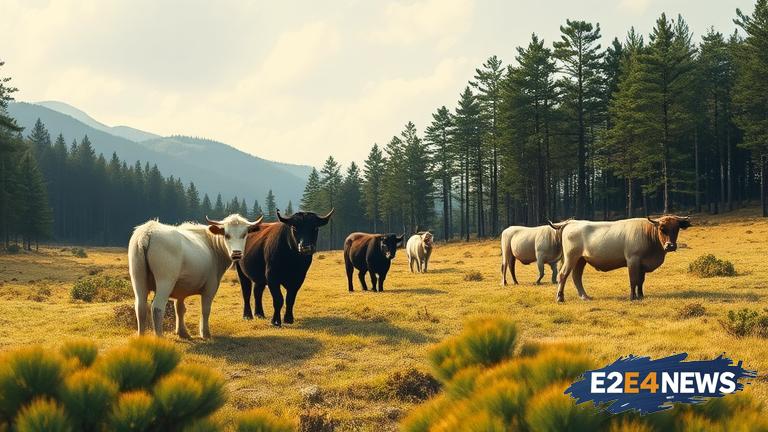New Zealand, known for its lush green landscapes and vast agricultural lands, is facing a unique challenge as pine forests continue to encroach on grazing land, posing a significant threat to the country’s sheep farming industry. The expansion of pine forests has been rapid, with many farmers selling their land to forestry companies, which has resulted in a substantial decrease in available grazing land. This has left many farmers struggling to maintain their livestock, with some even being forced to reduce their flock sizes or seek alternative grazing arrangements. The issue has sparked concerns over the long-term sustainability of New Zealand’s agricultural industry, which is a significant contributor to the country’s economy. The pine forest expansion has been driven by the demand for timber and the desire to combat climate change through carbon sequestration. However, the consequences of this expansion are far-reaching, with many farmers feeling the pinch as they struggle to adapt to the changing landscape. The New Zealand government has been urged to intervene and provide support to farmers, who are facing significant challenges in maintaining their livelihoods. The impact of the pine forest expansion is not limited to the agricultural industry, with many rural communities also feeling the effects. The loss of grazing land has resulted in a decline in rural employment opportunities, which has had a ripple effect on the local economy. Furthermore, the expansion of pine forests has also raised concerns over the potential impact on the country’s biodiversity, with many native species being displaced by the introduction of non-native tree species. The New Zealand government has implemented policies aimed at promoting sustainable land use, but many farmers feel that more needs to be done to address the issue. The pine forest expansion has also sparked debates over the balance between economic development and environmental protection. While the expansion of pine forests has the potential to generate significant economic benefits, it also poses significant environmental risks, including the loss of biodiversity and the degradation of soil quality. In response to the issue, many farmers are exploring alternative land use options, such as regenerative agriculture and agroforestry, which prioritize soil health and biodiversity. However, these alternatives often require significant investment and can be challenging to implement, particularly for small-scale farmers. The New Zealand government has been encouraged to provide support to farmers who are seeking to adopt more sustainable land use practices, including providing funding for research and development initiatives. Additionally, there have been calls for greater transparency and accountability in the forestry industry, with many arguing that the expansion of pine forests has been driven by short-term economic gains rather than long-term sustainability. The issue has also highlighted the need for more effective planning and regulation, with many arguing that the expansion of pine forests has been allowed to occur without sufficient consideration for the potential impacts on the agricultural industry and rural communities. In conclusion, the expansion of pine forests in New Zealand poses significant challenges to the country’s agricultural industry, with many farmers struggling to maintain their livelihoods. The issue requires a comprehensive and multifaceted response, including support for farmers, greater transparency and accountability in the forestry industry, and more effective planning and regulation. Ultimately, the goal should be to achieve a balance between economic development and environmental protection, ensuring that the expansion of pine forests is sustainable and does not come at the expense of the country’s agricultural industry or rural communities.
